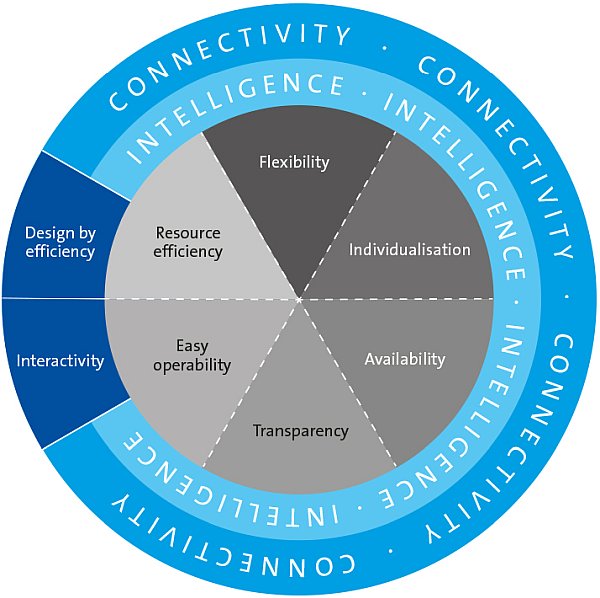The demands in the printing and converting industry are increasing. Lenze offers the right solution.
The innovativeness of the converting and printing industry means that new challenges are constantly arising with regard to the systems and machines that it uses. Increasing digitisation is and will continue to be a part of current and future requirements. The following across-the-board trends are becoming more and more important.
Industry 4.0 – Cooperative competence becomes the new core competence.
Mechanical engineering has always been characterised by a high degree of orientation to the customer, converting the needs of its customers into real technical solutions. With Industrie 4.0, possibilities and new facets offering new opportunities arise from outside the known-world of mechanical engineering. Anyone who cooperates with partners faster and more effectively and integrates these partners into their ongoing processes will always win in competition with others. Cooperative competence generates a level of expertise that has answers to end users' trends and the requirements that will be placed on the next generation of machines.
It creates technical solutions and innovations that bring decisive benefits:
- What benefits are most important for you?
- What technical measures have already been taken?
- Where do your greatest challenges lie?
We look forward to talking to you about possible joint projects and perspectives for the future.

